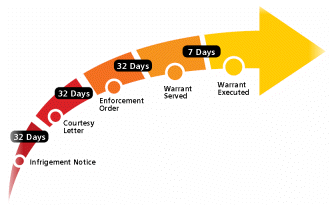About AARTO
About AARTO

AARTO is the “Administrative Adjudication of Road Traffic Offences” Act and was first enacted in 1998.
AARTO pilot projects were implemented in Tshwane in July 2008 and Johannesburg in February 2009.
Roll out of AARTO to the rest of South Africa is scheduled for the 2015/2016 financial year.
The aim of this new legislation is, quite simply, to make South Africa’s roads safer.
Why AARTO
Road traffic injuries are a major public health problem and a leading cause of death and injury around the world. Traffic crashes kill more than 1.2 million people and injure or disable over 50 million people annually. Globally, road traffic crashes are the leading cause of death for children and young people aged 5–29 years.
Road traffic fatalities in South Africa are amongst the highest in the world. In attempting to address this problem, South Africa has for many years now participated in numerous international initiatives and declarations aimed at improving road safety – the most significant of which was the recent signing of the 2009 Moscow Declaration. This Declaration is an 11-point plan that sets ambitious yet feasible national road traffic casualty reduction targets.
Recognising that two of the most important catalysts in effecting an improvement in driver behaviour and compliance with traffic laws are:
1) a well-planned, efficient and effective law enforcement system; and
2) an equally effective and just road traffic adjudication system
AARTO is South Africa’s plan to meet these targets. AARTO seeks to meet the targets set by imposing hefty fines coupled with demerit-points for drivers, owners and operators which will lead to the suspension of driving privileges where drivers infringe on the law repeatedly.
Road traffic fatalities in South Africa are amongst the highest in the world. In attempting to address this problem, South Africa has for many years now participated in numerous international initiatives and declarations aimed at improving road safety – the most significant of which was the recent signing of the 2009 Moscow Declaration. This Declaration is an 11-point plan that sets ambitious yet feasible national road traffic casualty reduction targets.
Stated goals of the AARTO Program are to:
Develop an effective, efficient and streamlined system that will take routine traffic offenses out of the over-stretched court system and create incentives that increase compliance with road traffic laws;

Overcome wide discrepancies in the penalties imposed by different magistrates (or applied in different jurisdictions) for the same types of traffic violations;
Ensure uniformity in the different sentencing norms for the majority of serious traffic violations which are generally too low to be adequately prohibitive;
Ensure that sentences are more appropriately attuned to the differential capacity of offenders to pay;
Be tough on those who do not pay fines imposed and those who ignore summonses to appear in court;
Take persistent offenders and dangerous drivers off the road; and,
Provide drivers and fleet operators with rewards for good behaviour.
How AARTO works:
AARTO is a demerit-point and fine-based traffic management system.
AARTO is administered by the Road Traffic Infringement Agency (RTIA) and will be enforced by local traffic authorities across South Africa.
The AARTO Act categorises traffic violations as either infringements (minor or major) or offences. Both will lead to fines and demerit points against your driving record (or operator card) but offences, as in the past, are criminal offenses regarded as serious violations of the law for which you will be arrested and charged according to the Criminal Procedures Act.

The AARTO Charge Book defines the 1929 traffic violations categorised as infringements and the 126 traffic violations categorized as offenses. The Charge Book also prescribes precisely the fine and the number of demerits for each infringement and offence. Under AARTO, the maximum fine is 1500 Rand and the maximum number of demerits is 5. Up to 3 infringements can be included on a single Infringement Notification, but you pay only one fine – the largest of those on your notification – and receive demerits for only one violation – the one with the greatest number of demerits
If you are caught committing a traffic violation, you will receive an infringement notice. This notice will be either an AARTO 01, AARTO 02 or AARTO 03 notification.
AARTO 01 is an infringement notice completed by hand at the roadside and served in person.
ARTO 02 is an infringement notice completed electronically at the roadside and served in person or by registered mail.
AARTO 03 is an Infringement notice for camera and other infringements served by registered mail.